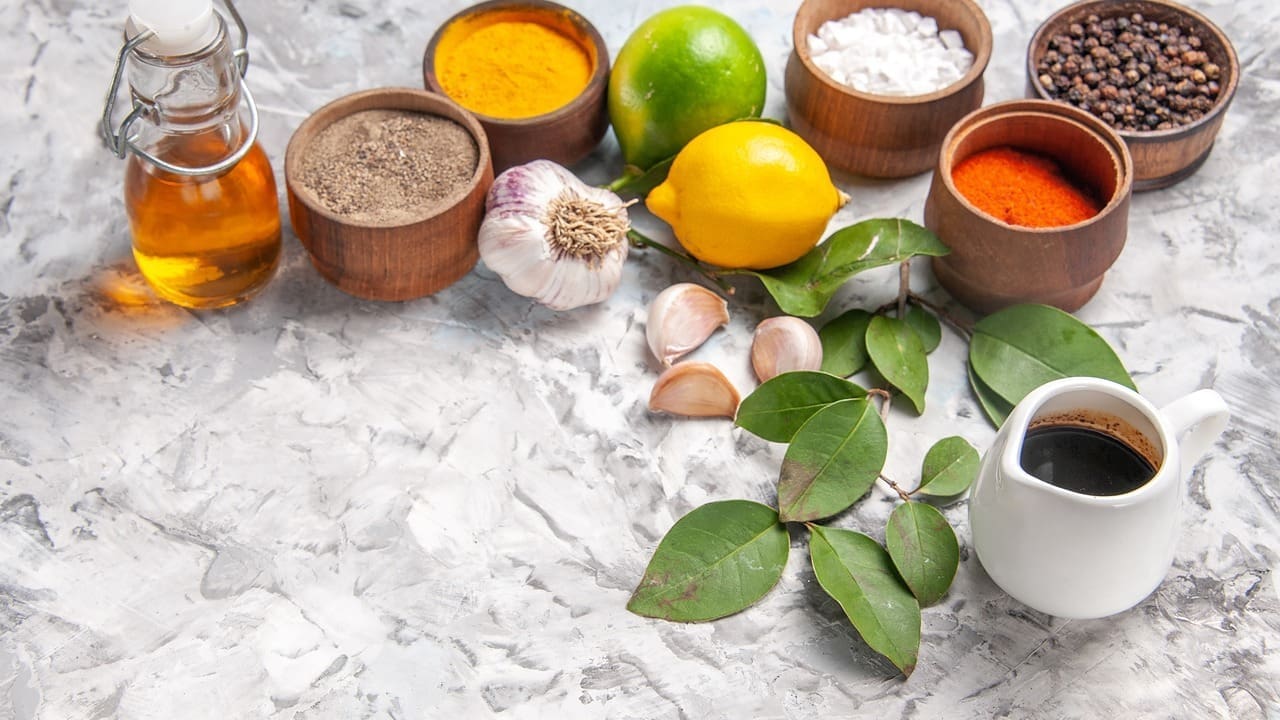
Osteoarthritis can make everyday life tough, affecting your joints and overall well-being. It’s important to manage symptoms like pain and stiffness to keep moving freely. There are many effective home treatments that can help alongside doctor’s advice.
Studies show that online self-management programs can really help with osteoarthritis pain and function. At Liv Hospital, we mix proven methods with holistic care. Our aim is to give you the tools and knowledge to handle your condition better, improving your life.
Adding simple lifestyle changes and supplements to your day can ease osteoarthritis pain. We’re here to support you fully, making sure you get the care and attention you need.
Key Takeaways
- Effective home treatments can complement traditional osteoarthritis therapies.
- Digital-based self-management programs can improve pain and physical function.
- Lifestyle changes and supplements play a key role in managing osteoarthritis symptoms.
- Holistic care approaches are essential for complete support.
- Empowering patients with knowledge and tools is key to managing osteoarthritis.
Understanding Osteoarthritis and Its Impact

It’s important to know about osteoarthritis to manage its effects on daily life. This disease causes cartilage to break down, leading to bone rubbing against bone and a lot of pain.
What Causes Osteoarthritis
Osteoarthritis comes from a mix of factors like aging, genetics, and joint wear and tear. Age is a big risk factor because cartilage gets weaker with time. Being overweight and past joint injuries can also speed up the damage.
Common Symptoms and Progression
The signs of osteoarthritis include pain, stiffness, and less mobility in the joints. As it gets worse, these symptoms can get even worse, affecting how well you can move and live. Pain is often the first sign, happening after rest or when you’re not active.
Why People Seek Natural Solutions
Many people look for natural ways to deal with osteoarthritis because of the limits and side effects of traditional treatments.
“Natural remedies offer a holistic approach to managing osteoarthritis, focusing on overall well-being instead of just treating symptoms.”
Natural options, like changing your lifestyle and trying alternative therapies, can offer lasting relief and better quality of life.
Knowing the causes and symptoms of osteoarthritis helps people make better choices about their treatment. This includes using natural solutions.
Natural Remedies for Osteoarthritis: An Overview

Natural remedies offer a way to help with osteoarthritis, along with traditional treatments. They can improve your overall health. It’s key to know how they support joint health.
How Natural Treatments Support Joint Health
Natural treatments aim to lessen inflammation and boost joint movement. They also help the body heal naturally. Changes in diet, supplements like glucosamine and chondroitin, and activities like yoga and tai chi are examples.
Complementing Conventional Medicine
While traditional medicine might include drugs or surgery, natural remedies offer a different approach. They can be used together with traditional treatments. This can lead to better symptom management and outcomes.
Setting Realistic Expectations
It’s important to have realistic hopes when using natural remedies for osteoarthritis. These methods might not cure the condition but can greatly enhance your life. They work best when used regularly and with other treatments.
| Natural Remedy | Benefits |
|---|---|
| Dietary Changes | Reduces inflammation, supports overall health |
| Glucosamine and Chondroitin | Supports cartilage health, may reduce pain |
| Yoga and Tai Chi | Improves flexibility, reduces stress |
Knowing the benefits and limits of natural remedies helps those with osteoarthritis make better treatment choices.
Exercise: The Foundation of Joint Health
Regular exercise is key for managing osteoarthritis. It offers many benefits for joint health. By adding physical activity to their daily life, people with osteoarthritis can see big improvements in symptoms and quality of life.
Exercise keeps joints moving, strengthens muscles, and can lessen pain. We suggest mixing low-impact activities, strengthening exercises, and water-based exercises for these benefits.
Low-Impact Activities That Protect Joints
Low-impact activities are great for osteoarthritis as they don’t stress joints too much. Examples include:
- Cycling
- Swimming
- Elliptical trainer workouts
These activities are good for the heart without harming joints too much.
Strengthening Exercises for Joint Support
It’s important to strengthen muscles around joints to support them and lessen pain. We recommend:
- Resistance band exercises
- Light weightlifting
- Bodyweight exercises like squats and lunges (modified as needed)
These exercises help keep joints stable and improve function.
Water-Based Exercises for Pain Relief
Water-based exercises, like water aerobics or swimming, are low-impact. They improve joint mobility and reduce pain. Water’s buoyancy makes it a great place for exercise.
Creating a Sustainable Exercise Routine
To get the most from exercise, be consistent. Start slow and gradually increase workout intensity and time. Listen to your body and rest when needed. Creating a routine that balances exercise with rest makes physical activity a sustainable part of your life.
“Exercise is a celebration of what your body can do, not a punishment for what you ate.” Seeing exercise as a positive experience can make it enjoyable, not a chore.
By mixing different exercises into your routine and listening to your body, you can manage osteoarthritis symptoms and improve your well-being.
Weight Management for Reducing Joint Pressure
Managing your weight is key to easing joint pressure and osteoarthritis symptoms. For many, extra weight makes joint pain worse, specially in the knees.
How Each Pound Affects Your Joints
Every pound adds stress to your joints, like hips, knees, and spine. Losing weight can lessen this stress. For example, losing 10 pounds can cut knee pressure by 40 pounds.
Anti-Inflammatory Eating Patterns
Eating anti-inflammatory foods is vital for joint health. Foods high in omega-3s, antioxidants, and fiber help fight inflammation. Good choices include:
- Fatty fish like salmon and sardines
- Fruits and vegetables, like berries and leafy greens
- Whole grains, such as quinoa and brown rice
- Nuts and seeds, like walnuts and chia seeds
A study in the Journal of Nutrition found that eating fruits, veggies, and whole grains reduces inflammation. It also improves health.
“The way we eat can either fuel or reduce inflammation in our bodies. By choosing the right foods, we can take a significant step towards managing osteoarthritis symptoms.”
Sustainable Weight Loss Strategies
Crash diets don’t work well. Instead, focus on lasting lifestyle changes for slow, steady weight loss. This includes:
| Strategy | Description | Benefit |
|---|---|---|
| Balanced Diet | Eating a variety of nutrient-dense foods | Supports overall health and weight management |
| Regular Exercise | Engaging in physical activities like walking or swimming | Enhances weight loss and joint mobility |
| Portion Control | Managing food portions to avoid overeating | Helps maintain a healthy calorie intake |
By using these strategies, you can reach a healthy weight. This reduces joint pressure and eases osteoarthritis pain.
Holistic Movement Therapies for Flexibility
We see the value of holistic movement therapies in easing osteoarthritis symptoms. They help people live more active and fulfilling lives. These therapies boost flexibility, balance, and joint health, key for those with osteoarthritis.
Yoga Poses That Relieve Osteoarthritis Pain
Yoga is a great holistic movement therapy. It combines poses, breathing, and meditation for better well-being. Some yoga poses, like seated forward bends and cat-cow stretches, ease osteoarthritis pain by improving flexibility and strengthening muscles.
Tai Chi Benefits for Balance and Joint Health
Tai chi is another effective therapy for balance, flexibility, and joint health. It’s a slow, flowing Chinese practice that boosts coordination and lowers fall risks. Regular tai chi can lessen osteoarthritis pain and enhance physical function.
Gentle Stretching Routines for Daily Relief
Simple stretches, like shoulder rolls and hip flexor stretches, offer daily relief. These can be done at home or in groups. Adding these stretches to your daily routine keeps joints mobile and reduces stiffness.
| Therapy | Benefits |
|---|---|
| Yoga | Improves flexibility, strengthens muscles around joints |
| Tai Chi | Enhances balance, coordination, and joint health |
| Gentle Stretching | Maintains joint mobility, reduces stiffness |
Adding these holistic movement therapies to their care plan can greatly improve flexibility and life quality for those with osteoarthritis.
Hot and Cold Therapy Techniques
We often suggest hot and cold therapy for managing osteoarthritis. These methods are simple to use at home. They can help a lot with pain and stiffness.
When to Use Heat for Stiffness
Heat helps relax muscles and boosts blood flow. This reduces stiffness. It’s great before you start exercising.
When to Apply Cold for Inflammation
Cold therapy cuts down inflammation and dulls pain. Use it after you’ve been active or if you have swelling.
DIY Heat and Cold Treatments
Try using warm towels, cold packs, or warm baths. Switching between heat and cold can also help.
Alternating Therapies for Maximum Benefit
Some people get the best results by switching between hot and cold. Start with heat, then cold, and keep alternating.
Herbal Remedies with Anti-Inflammatory Properties
Some herbal remedies have anti-inflammatory properties. They might help manage osteoarthritis. We look at the most effective ones for symptom relief.
Turmeric and Curcumin: Dosage and Benefits
Turmeric, found in curry, has curcumin, which fights inflammation and is antioxidant. Research shows curcumin can lessen joint pain and swelling in osteoarthritis. Take 500 to 2000 mg of curcumin daily. Choose a supplement with bioavailable curcumin, often with piperine for better absorption.
Ginger Applications for Pain Relief
Ginger has been used for centuries for its anti-inflammatory effects. It can reduce pain and swelling in osteoarthritis. You can eat it fresh, dried, or as a supplement. Aim for 250 to 500 mg, up to four times a day. For more on herbal remedies for arthritis, check the American College of Rheumatology website.
Green Tea and Other Beneficial Herbs
Green tea has antioxidants that may slow osteoarthritis. Willow bark and boswellia also have anti-inflammatory effects. But, talk to a doctor before adding them to your routine, if you’re on meds.
Safe Usage and Possible Interactions
Herbal remedies can be good but also interact with meds or cause side effects. Turmeric can thin blood, and ginger might affect diabetes meds. Always check with a healthcare professional before starting any supplement.
Topical Treatments for Immediate Relief
Getting quick relief from osteoarthritis pain is easy with the right topical treatments. These are applied right to your skin. They offer a focused way to manage pain.
Capsaicin-Based Products for Pain Management
Capsaicin comes from chili peppers and is found in many creams. It cuts down on substance P, a chemical that sends pain signals to your brain.
Comfrey and Arnica Applications
Comfrey and arnica are ancient remedies for pain and swelling. Comfrey has allantoin, which soothes the skin. Arnica is known for its ability to reduce inflammation.
Essential Oils for Joint Pain
Essential oils like eucalyptus, peppermint, and wintergreen can help with joint pain. You can apply them directly to your skin or mix with a carrier oil for a massage.
Creating Your Own Pain-Relief Blends
To make your own blend, mix a few drops of essential oils with coconut or olive oil. Adding capsaicin cream or arnica gel can make it even more effective.
| Topical Treatment | Key Ingredients | Benefits |
|---|---|---|
| Capsaicin Cream | Capsaicin | Pain relief by reducing substance P |
| Comfrey Cream | Allantoin | Soothes and calms the skin |
| Arnica Gel | Anti-inflammatory compounds | Reduces inflammation and pain |
Supplements for Supporting Cartilage Health
Supplements are key in managing osteoarthritis. They help keep cartilage healthy. It’s important to know how they work and their benefits.
Glucosamine and Chondroitin: Evidence and Usage
Glucosamine and chondroitin are top choices for osteoarthritis. They might ease symptoms and slow the disease. Glucosamine helps cartilage, and chondroitin keeps it moist and elastic.
Research shows mixed results, but many people find relief. Always talk to a doctor before trying supplements.
Omega-3 Fatty Acids for Inflammation Control
Omega-3 fatty acids, like EPA and DHA, fight inflammation. They’re found in fish oil or fatty fish.
Studies show omega-3s can lessen pain and swelling. Adding them to your treatment plan can help a lot.
Avocado-Soybean Unsaponifiables (ASU)
ASU comes from avocado and soybean oils. It might reduce pain and improve function in osteoarthritis. Its exact action is not known, but it’s thought to be anti-inflammatory.
Vitamin D, Calcium, and Bone Health
Vitamin D and calcium don’t directly target cartilage. But they’re vital for bone health. They help keep joints strong and might slow osteoarthritis.
Getting enough vitamin D and calcium is key. You can get them from food or supplements.
Knee Osteoarthritis: Targeted Natural Approaches
For those with knee osteoarthritis, natural methods can help a lot. This condition causes pain, stiffness, and makes moving hard. It affects millions globally.
Specific Exercises for Knee Joint Support
It’s key to strengthen the muscles around the knee. Straight leg raises and quad sets are easy exercises to do at home. They help make the knee stronger.
Low-impact activities like cycling and swimming are good too. They help the joint move without too much stress.
Braces and Support Devices
Braces and support devices offer extra stability and relief. Knee braces come in different types. Some offer medial or lateral support.
Massage Techniques for Knee Pain
Massage therapy can ease knee pain by boosting blood flow and easing muscle tightness. Deep tissue massage and myofascial release are great options.
Daily Habits That Protect Knee Joints
Simple daily habits can help a lot with knee osteoarthritis. Keeping a healthy weight lessens pressure on the knees. Wearing proper footwear also helps spread out the impact of each step.
By adding these natural methods to your daily life, you can better manage knee osteoarthritis. This improves your overall well-being.
Conclusion: Building Your Personalized Osteoarthritis Management Plan
Creating a personalized management plan is key for managing osteoarthritis well. By using different natural remedies, people can handle their symptoms better. We’ve looked at many ways to treat osteoarthritis naturally, like exercise and holistic therapies.
Having a plan that fits your needs is important. You should work with doctors to make a detailed plan. This might include special diets, herbal remedies, and supplements for cartilage health.
Being proactive in managing osteoarthritis can help a lot. It can reduce pain, improve joint function, and keep you independent. We suggest working with your healthcare team to make a plan. Use the natural remedies and strategies from this article for the best results.
FAQ
What are some natural ways to cure osteoarthritis?
There’s no cure for osteoarthritis, but natural methods can help. Exercise, managing your weight, and holistic therapies can ease symptoms and improve joint health.
How can I manage osteoarthritis pain naturally?
To manage osteoarthritis pain naturally, try topical treatments like capsaicin, comfrey, and arnica. Also, hot and cold therapy can be helpful.
What are some herbal remedies for osteoarthritis?
Turmeric, ginger, and green tea have anti-inflammatory properties. They might help with osteoarthritis symptoms. Always talk to a healthcare professional before using herbal remedies.
Can exercise help with osteoarthritis?
Yes, exercise is key for managing osteoarthritis. Low-impact activities, strengthening exercises, and water-based exercises can improve joint health and reduce pain.
How does weight management impact osteoarthritis?
Keeping a healthy weight reduces joint pressure, which is good for those with knee osteoarthritis. A balanced diet and sustainable weight loss can help alleviate symptoms.
What are some natural supplements for osteoarthritis?
Supplements like glucosamine, chondroitin, and omega-3 fatty acids may support cartilage health and reduce inflammation. Always consult a healthcare professional before adding supplements.
How can I protect my knee joints from osteoarthritis?
Protect your knee joints by maintaining a healthy weight, exercising regularly, and using supportive devices like braces.
Are there any natural treatments for osteoarthritis that I can try at home?
Yes, you can try natural treatments at home like hot and cold therapy, topical treatments, and herbal remedies. Always consult a healthcare professional before starting new treatments.
Can yoga and tai chi help with osteoarthritis?
Yes, yoga and tai chi can improve flexibility, balance, and joint health. They can reduce osteoarthritis symptoms.
How can I create a personalized osteoarthritis management plan?
Work with a healthcare professional to create a personalized plan. Include natural remedies, lifestyle changes, and conventional treatments that fit your needs.
What are some natural ways to cure osteoarthritis?
There’s no cure for osteoarthritis, but natural methods can help. Exercise, managing your weight, and holistic therapies can ease symptoms and improve joint health.
How can I manage osteoarthritis pain naturally?
To manage osteoarthritis pain naturally, try topical treatments like capsaicin, comfrey, and arnica. Also, hot and cold therapy can be helpful.
What are some herbal remedies for osteoarthritis?
Turmeric, ginger, and green tea have anti-inflammatory properties. They might help with osteoarthritis symptoms. Always talk to a healthcare professional before using herbal remedies.
Can exercise help with osteoarthritis?
Yes, exercise is key for managing osteoarthritis. Low-impact activities, strengthening exercises, and water-based exercises can improve joint health and reduce pain.
How does weight management impact osteoarthritis?
Keeping a healthy weight reduces joint pressure, which is good for those with knee osteoarthritis. A balanced diet and sustainable weight loss can help alleviate symptoms.
What are some natural supplements for osteoarthritis?
Supplements like glucosamine, chondroitin, and omega-3 fatty acids may support cartilage health and reduce inflammation. Always consult a healthcare professional before adding supplements.
How can I protect my knee joints from osteoarthritis?
Protect your knee joints by maintaining a healthy weight, exercising regularly, and using supportive devices like braces.
Are there any natural treatments for osteoarthritis that I can try at home?
Yes, you can try natural treatments at home like hot and cold therapy, topical treatments, and herbal remedies. Always consult a healthcare professional before starting new treatments.
Can yoga and tai chi help with osteoarthritis?
Yes, yoga and tai chi can improve flexibility, balance, and joint health. They can reduce osteoarthritis symptoms.
How can I create a personalized osteoarthritis management plan?
Work with a healthcare professional to create a personalized plan. Include natural remedies, lifestyle changes, and conventional treatments that fit your needs.
Références
- Healthline : https://www.healthline.com/health/osteoarthritis/natural-home-remedies
- Long Island Plastic Surgery Group & Orthopedics : https://lportho.com/natural-treatments-to-relieve-your-osteoarthritis-pain
- Arthritis Foundation : https://www.arthritis.org/health-wellness/treatment/complementary-therapies/supplements-and-vitamins/12-supplements-for-osteoarthritis
- EBSCO (Research Starters) : https://www.ebsco.com/research-starters/complementary-and-alternative-medicine/natural-treatments-osteoarthritis
- PubMed : https://pubmed.ncbi.nlm.nih.gov/12749749



































